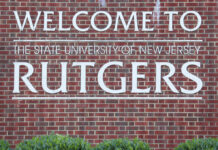
On Thursday, the U.S. Food and Drug Administration (FDA) disclosed that about one in five commercial milk samples recently tested nationally contained traces of H5N1, known as the “bird flu” virus. Despite the unexpected findings, the FDA assures the public there is no imminent health risk from the virus in milk.
The virus, which has permeated dairy cattle across the nation, has not altered the FDA’s stance on the safety of the commercial milk supply. “This says this virus has largely saturated dairy cattle throughout the country,” stated Dr. Michael Osterholm, an infectious disease expert at the University of Minnesota.
The FDA has found that about 1 in 5 retail milk samples contain traces of highly contagious bird flu, though these findings may not indicate an infectious risk to consumers. https://t.co/IWcImPebZT
— The Hill (@thehill) April 26, 2024
The FDA’s confidence in milk safety is backed by extensive testing, including gold-standard PCR tests that confirm the pasteurization process effectively neutralizes the virus. Samuel Alcaine, an associate professor of food science at Cornell University, commented, “I’m not worried about the milk itself. It does indicate that the virus is more widespread among dairies than we had previously thought.”
Only one human case has been linked to this outbreak — a Texas farm worker who developed conjunctivitis after exposure to the infected cattle. The U.S. Centers for Disease Control and Prevention (CDC) and the World Health Organization (WHO) continue to monitor the situation closely but have not reported additional cases.
Despite the reassurances, the detection of H5N1 in milk has raised concerns about the virus’s broader impact and the effectiveness of current preventive measures. Sen. Mitt Romney (R-UT) criticized the federal response as insufficient.
Containing this before it spreads among humans is critical. Given lessons learned from COVID, this federal response is insufficient. The Senate needs to reauthorize PAHPA, which includes my bill to strengthen our public data infrastructure to help avert outbreaks like this. https://t.co/INxpw9fmhu
— Senator Mitt Romney (@SenatorRomney) April 26, 2024
“Containing this before it spreads among humans is critical. Given lessons learned from COVID, this federal response is insufficient. The Senate needs to reauthorize PAHPA, which includes my bill to strengthen our public data infrastructure to help avert outbreaks like this,” Romney wrote in a Friday post to X, formerly Twitter.
Starting next week, the USDA will mandate that dairy cows must test negative for bird flu before interstate transport. Additional measures are being considered in states like Indiana, where Bret Marsh, the state veterinarian, noted, “We’re taking a look here at the state level to see what we may need to do.”
While the FDA continues its investigation and testing, the prevailing expert opinion suggests that the milk at your local grocery store remains safe to consume.
















